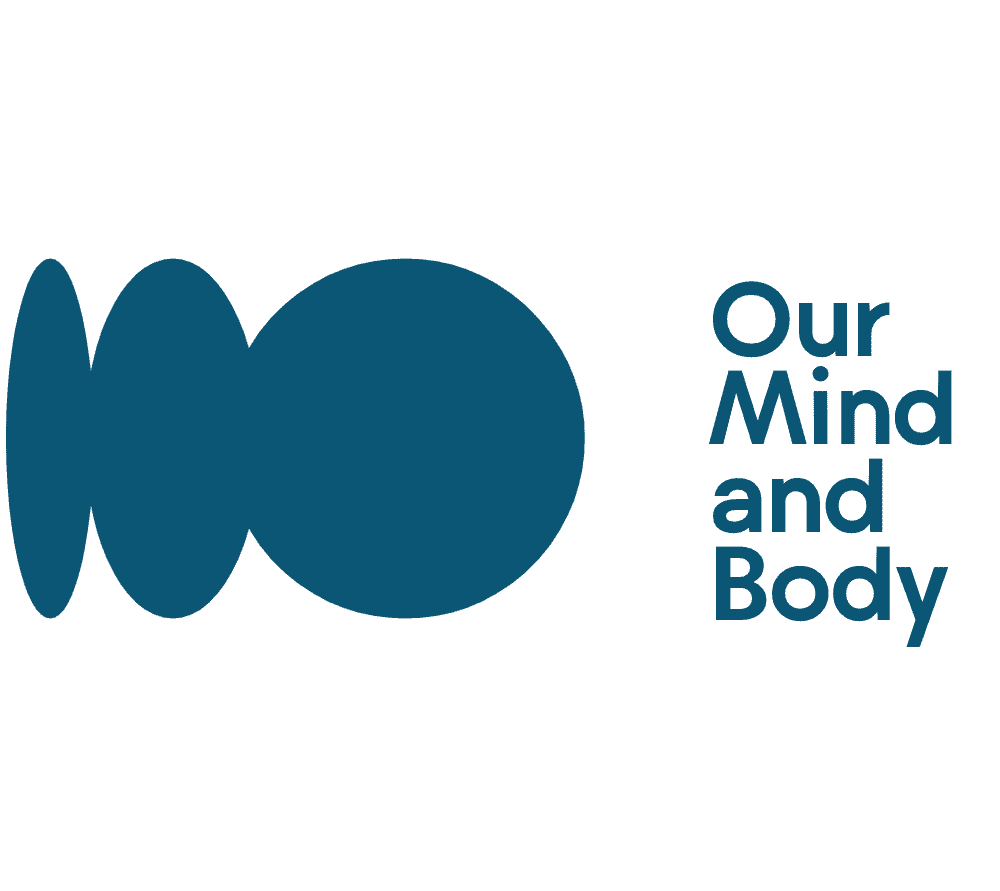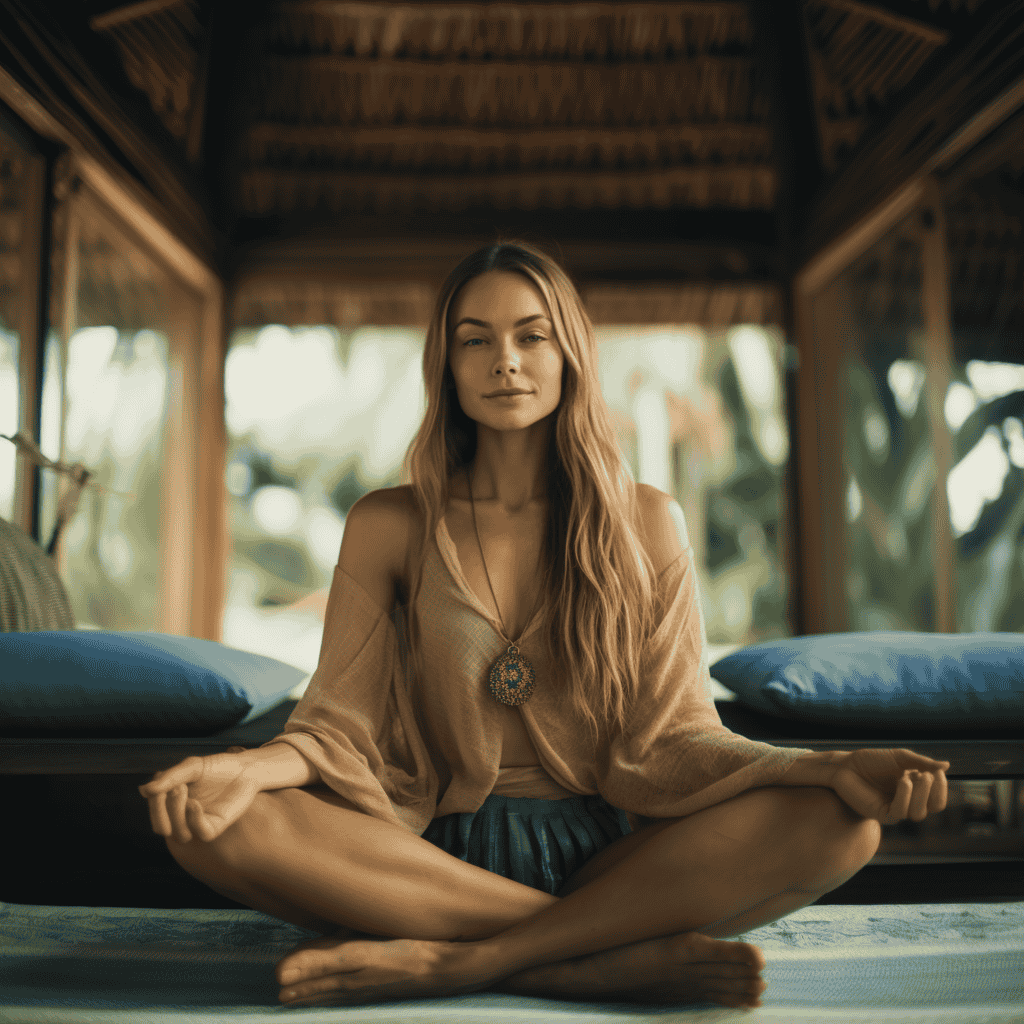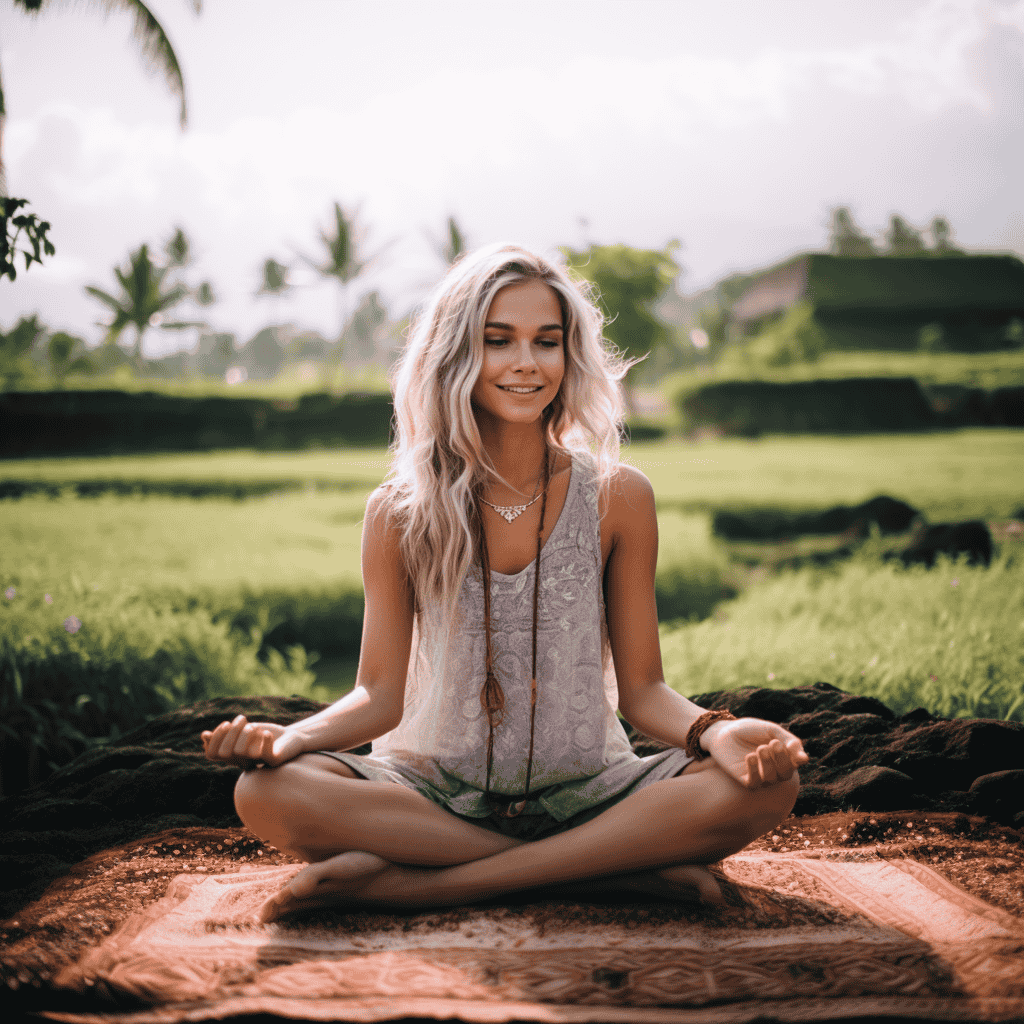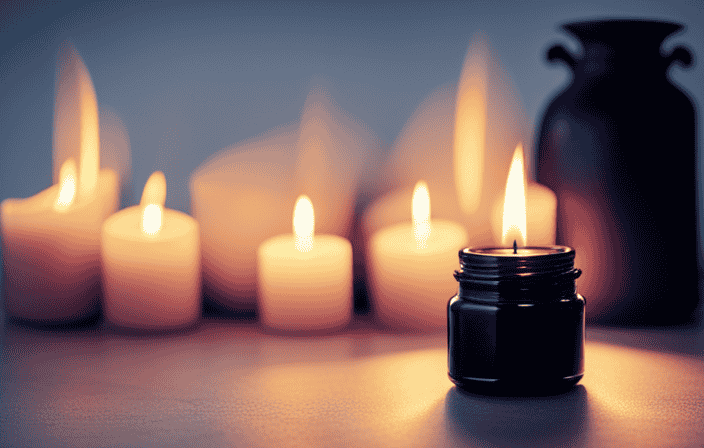Well-Being Tips
Winter’s Impact On Your Circadian Rhythm And Mental Health

As the days shorten and winter’s cold sets in, our circadian rhythm and mental health are put to the test. The rhythm of daylight plays a crucial role in our sleep patterns and overall well-being like a delicate dance.
But when winter arrives, its absence casts a shadow on our internal clock, causing disturbances in our sleep and affecting our mental health.
In this article, we will explore the impact of winter on our circadian rhythm and mental health, and discuss strategies to combat these challenges for a better winter slumber.
Key Takeaways
- Winter disrupts your circadian rhythm and can lead to sleep disturbances and irregular sleep patterns.
- The lack of exposure to natural light in winter affects the production of melatonin, which can further impact your sleep.
- Winter worsens seasonal affective disorder and depression, causing mood changes, feelings of sadness and hopelessness, and social withdrawal.
- To cope with the impact of winter on your circadian rhythm and mental health, it is important to maintain a consistent sleep schedule, create a sleep-friendly environment, seek therapy or counseling, engage in regular physical activity, practice stress management techniques, and stay connected with loved ones.
Winter’s Effect on Sleep
Winter disrupts my circadian rhythm, leading to sleep disturbances and affecting my overall sleep patterns due to the lack of daylight.
The shorter days and reduced exposure to natural light during winter can throw off my internal body clock. This disruption can make it harder for me to fall asleep and stay asleep throughout the night.
The lack of daylight affects the production of melatonin, a hormone that regulates sleep-wake cycles, causing my sleep patterns to become irregular. Sleep disturbances, such as insomnia or excessive daytime sleepiness, are common during the winter months.
To combat these disruptions, I try to maintain a consistent sleep schedule, create a sleep-friendly environment, limit exposure to blue light before bedtime, and practice relaxation techniques. These strategies help me improve my sleep quality and manage the effects of winter on my circadian rhythm.
Mental Health and Winter
Seasonal affective disorder and depression are more likely to worsen during this time of year. The lack of daylight in winter can have a significant impact on mental health, leading to mood changes and exacerbating existing conditions. It is important to seek mental health support during this time to cope with the winter blues.
To better understand the effects of winter on mental health, let’s take a look at the following table:
| Effects of Winter on Mental Health | Coping Strategies |
|---|---|
| Increased feelings of sadness and hopelessness | Seek therapy or counseling |
| Lack of motivation and energy | Engage in regular physical activity |
| Difficulty concentrating | Practice stress management techniques |
| Changes in appetite and weight | Maintain a balanced diet |
| Social withdrawal and isolation | Stay connected with loved ones |
These coping strategies can help individuals manage their mental health during the winter months and find support to overcome the challenges they may face. Remember, it is essential to prioritize self-care and seek professional help when needed.
Strategies for Better Sleep
To improve my sleep during the colder months, I should maintain a consistent sleep schedule. Consistency is key when it comes to regulating the body’s internal clock and maintaining a healthy circadian rhythm. Going to bed and waking up at the same time every day, even on weekends, helps to train the body to anticipate sleep and wakefulness.
Additionally, creating a sleep-friendly environment can greatly enhance the quality of sleep. This includes keeping the bedroom cool, dark, and quiet, as well as using comfortable bedding and pillows. Eliminating distractions such as electronic devices and limiting exposure to blue light before bedtime can also promote better sleep.
By prioritizing sleep schedule consistency and creating a sleep-friendly environment, I can optimize my sleep during the winter months and support overall well-being.
Importance of Staying Active
Staying active during the colder months is essential for maintaining a healthy lifestyle and supporting overall well-being. Regular exercise has numerous benefits for both physical and mental health, especially when it comes to winter’s impact on circadian rhythm and mental health.
Here are three reasons why staying active is important:
-
Boosts mood: Engaging in outdoor activities and exercise releases endorphins, which are natural mood boosters. This can help combat the winter blues and alleviate symptoms of depression and seasonal affective disorder.
-
Improves sleep quality: Physical activity helps regulate circadian rhythm, making it easier to fall asleep and stay asleep. Getting enough sleep during the winter months is crucial for maintaining optimal health.
-
Increases energy levels: Exercise increases blood flow and oxygen levels, providing a natural energy boost. This can counteract the lethargy and fatigue often experienced during winter.
Incorporating outdoor activities and regular exercise into your routine can have significant positive effects on both your physical and mental well-being during the winter months.
Seeking Medical Advice
Seeking medical advice is crucial when experiencing disruptions in sleep patterns and changes in mood during the colder months. Professional guidance can help diagnose and treat sleep disorders such as sleep apnea and provide appropriate interventions for mental health conditions like depression. It is important to remember that individual responses to winter vary, and tailored coping techniques may be necessary.
Here is a table that highlights the benefits of seeking medical advice and offers coping techniques for the winter blues:
| Benefits of Professional Guidance | Coping Techniques for Winter Blues |
|---|---|
| Accurate diagnosis of sleep disorders | Maintain a consistent sleep schedule |
| Tailored treatment plans for mental health conditions | Create a sleep-friendly environment |
| Guidance on managing symptoms and improving sleep quality | Limit exposure to blue light before bedtime |
| Access to medication or therapy options | Practice relaxation techniques for better sleep |
| Support in developing a personalized coping strategy | Use appropriate lighting and temperature for sleep |
By seeking medical advice, individuals can receive the necessary support and guidance to navigate the challenges that winter may pose to their circadian rhythm and mental well-being.
Frequently Asked Questions
How does winter affect the body’s production of melatonin, a hormone involved in regulating sleep-wake cycles?
Winter’s impact on sleep patterns can disrupt the body’s production of melatonin, a hormone involved in regulating sleep-wake cycles. The lack of daylight during winter can affect melatonin levels, leading to sleep disturbances and potentially exacerbating the effects on circadian rhythm.
Are there any specific foods or supplements that can help regulate circadian rhythm during the winter months?
Foods, supplements, and lifestyle changes can help regulate circadian rhythm during winter. Examples include melatonin-rich foods, magnesium supplements, light therapy, exercise, and adapting to geographical variations and climate impact.
Can exposure to artificial light sources, such as indoor lighting and electronic screens, have a similar impact on circadian rhythm as lack of daylight?
Exposure to artificial light sources, such as indoor lighting and electronic screens, can indeed have a similar impact on circadian rhythm as lack of daylight. The blue light emitted from these sources suppresses melatonin production and disrupts sleep patterns.
Are there any alternative therapies or treatments that can help alleviate the symptoms of seasonal affective disorder?
Alternative therapies, such as light therapy, can help alleviate the symptoms of seasonal affective disorder. Light therapy involves exposure to bright artificial light, which can help regulate circadian rhythm and improve mood during the winter months.
Does the effect of winter on sleep and mental health differ depending on geographical location and climate?
Geographical variations in climate affect the impact of winter on sleep and mental health. Factors like daylight availability and temperature fluctuations contribute to mood changes and sleep disturbances. Seek personalized coping strategies and medical advice.
Conclusion
In conclusion, winter’s impact on our circadian rhythm and mental health is undeniable. The lack of daylight disrupts our sleep patterns and can worsen conditions such as depression and seasonal affective disorder.
However, implementing strategies like maintaining a consistent sleep schedule and staying physically active can help mitigate these effects. It is important to seek medical advice if winter significantly affects our circadian rhythm, as professionals can provide tailored guidance and support.
Interestingly, studies have shown that exposure to natural light during winter can increase sleep duration by up to 46 minutes, painting a vivid picture of the positive effects that daylight can have on our sleep quality.
Meet Kiran, the guiding light of wisdom behind the empowering content at OurMindAndBody.com. As a talented and compassionate writer, Kiran weaves words with grace and insight, sharing profound knowledge and practical advice to inspire positive transformations in the lives of readers.
With a background in psychology and a deep-rooted passion for well-being, Kiran brings a unique blend of expertise and empathy to her writing. Her journey into the realm of mindfulness, meditation, and yoga began as a personal quest for self-discovery and healing. Having experienced the profound benefits of these practices firsthand, Kiran is committed to empowering others to embark on their own journeys of self-exploration and growth.
Well-Being Tips
Top 6 Tanning Products for Radiant Summer Skin

As the summer sun beckons, it’s time to achieve that perfect golden glow. Whether you’re looking for a natural tan or a faux glow, we’ve rounded up the best tanning products to help you get summer-ready skin. Let’s dive into Tanning Trends’ top picks for achieving a beautiful, bronzed complexion!
1. Carroten Intensive Tanning Gel SPF0: The Ultimate Accelerator
For those seeking a deep, flawless tan without the greasiness, Carroten Intensive Tanning Gel SPF0 is a game-changer. This lightweight gel absorbs quickly and is suitable for all skin types.

- 150 ml / 5 oz size
- Contains antioxidant vitamins A and E
- Pleasant fragrance
- Perfect for: achieving tanned skin
Pro tip: Apply evenly and reapply as needed for best results. Remember, SPF0 means no sun protection, so use with caution and consider additional sun protection measures.
2. Hawaiian Tropic Island Tanning Oil Spray: Tropical Paradise in a Bottle
Transport yourself to a tropical paradise with Hawaiian Tropic Island Tanning Oil Spray. This tanning oil not only helps you achieve a golden glow but also provides SPF 6 protection and moisturizing benefits.

- 8 oz size
- Oxybenzone-free formula
- Moisturizing body oil
- Ideal for: sun protection while tanning
For those who prefer more sun protection, consider the Hawaiian Tropic Protective Tanning Oil Spray with SPF 25, which offers higher UV protection and is water-resistant for up to 80 minutes.
3. Tan Physics Sunless Tanner: Faux Glow Perfection
If you’re looking for a sunless tanning option, Tan Physics Sunless Tanner is an excellent choice for achieving a natural-looking tan without sun exposure.

- 8 oz bottle
- Streak-free formula
- Develops natural-looking color
- Great alternative for: those who prefer sunless tanning
To achieve the best results, exfoliate your skin before application and use a tanning mitt for even distribution.
4. Golden Skin Glow Drops: Customizable Radiance
For a versatile tanning option that can be used year-round, try the Golden Skin Glow Drops. These liquid bronzing drops allow you to customize your glow by mixing them with your favorite moisturizer or foundation.

- 1.35 oz bottle
- Vegan and cruelty-free
- Translucent bronzing tint
- Perfect for year-round use: incorporate into your daily skincare routine
Experiment with different ratios to find your perfect glow intensity. These drops are great for both face and body use.
5. Australian Gold Dark Tanning Accelerator Spray Gel: Quick Color Boost
For those looking to speed up their tanning process, the Australian Gold Dark Tanning Accelerator Spray Gel is a fantastic option. This product intensifies color payoff and promotes a golden tan after just a few sessions.
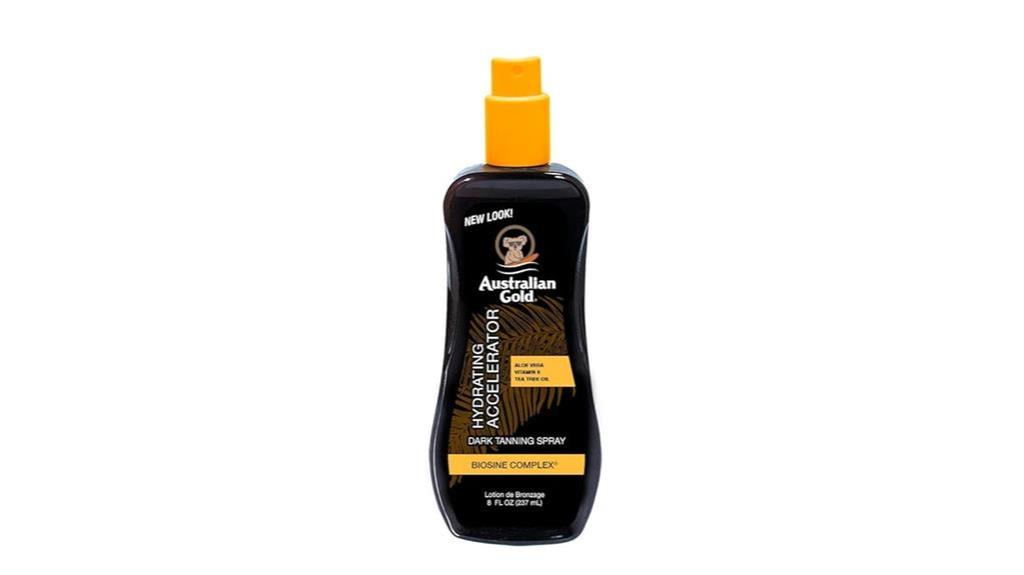
- 8 ounce spray gel
- Contains Kakadu Plum extract and Tea Tree Oil
- Nourishes skin with Vitamins A and E
- Ideal for speeding up your tan: learn more about tanning accelerators
This product can be used for both indoor and outdoor tanning, making it a versatile addition to your tanning routine.
6. Sun Bum SPF 15 Moisturizing Tanning Oil: Responsible Bronzing
For those who want to tan responsibly while keeping their skin hydrated, Sun Bum SPF 15 Moisturizing Tanning Oil is an excellent choice. This reef-friendly formula provides sun protection while helping you achieve a beautiful bronze.

- 8.5 oz size
- Vegan formula
- Contains aloe vera, argan oil, and coconut oil
- Best for environmentally conscious tanners
This water-resistant formula is perfect for beach days or poolside tanning sessions.
Carroten Gel
Deep, quick tan
Hawaiian Tropic
Moisturizing tan
Tan Physics
Sunless tanning
Sun Bum Oil
Eco-friendly tanning
Conclusion: Achieving Your Perfect Summer Glow
Whether you prefer natural tanning, sunless options, or a combination of both, there’s a perfect product out there for everyone. Remember to always prioritize skin health and safety when tanning. Start with shorter exposure times and gradually increase to build your tan safely.
For more tips on achieving and maintaining your perfect tan, check out Tanning Trends’ lifestyle tips section. And don’t forget to explore Tanning Trends’ sun protection guide to ensure you’re taking care of your skin while enjoying that beautiful golden glow.
Happy tanning, and here’s to a radiant, sun-kissed summer!
Meet Nadi, the soulful writer and explorer of inner realms who graces OurMindAndBody.com with her profound insights and heartfelt wisdom. With a profound passion for mindfulness, meditation, and spiritual growth, Nadi weaves words that touch the hearts and minds of readers, leaving a lasting impact on their well-being journey.
Rooted in a background of philosophy and psychology, Nadi’s curiosity about the human mind and the mysteries of the soul led her on a transformative path of self-discovery. Drawn to the transformative power of mindfulness and meditation, she embarked on a quest to understand the intricacies of these practices, not only for her own growth but also to inspire others to embark on their own inner journeys.
Well-Being Tips
Making A Stress-Free Transition To Assisted Living: Involving Your Loved One, Choosing A Facility, Celebrating The Change, And Overcoming Obstacles

Are you or a family member dealing with the challenging transition to assisted living? It may seem like sailing through rough waters, but don’t worry! I am here to help you navigate towards a smooth and stress-free journey.
Picture this: a smooth sail where you involve your loved one every step of the way, choose the perfect facility tailored to their needs, celebrate the change together, and overcome any obstacles that come your way.
Together, let’s embark on this adventure and make the transition a breeze.
Key Takeaways
- Involving your loved one in decision-making and maintaining contact
- Choosing a facility and downsizing with their needs and preferences in mind
- Celebrating the transition and getting others involved for support
- Being prepared for obstacles and embracing the process as part of the journey
Involvement in decision-making
I involve my loved one in all aspects of the transition to assisted living. I treat them with respect, ensuring they feel valued and heard. I discuss any stressful situations openly.
Including family members in the decision-making process is crucial. It makes them feel involved and empowered. I listen to their concerns, desires, and preferences. I consider them when making choices about the facility.
Communication plays a vital role in this process. It helps us understand each other’s needs and expectations. Regular conversations and updates keep everyone informed and involved.
I make sure to actively listen, validate their feelings, and address any worries or fears they may have. By involving my loved one and prioritizing open communication, we can work together to make the transition to assisted living as stress-free as possible.
Choosing a facility
When selecting a facility for my loved one, I will create a checklist that takes into account their specific needs and preferences. This checklist will help me compare amenities and evaluate staff expertise. It is important to consider the activities and features offered by the facility, as well as the quality and variety of food provided. I want my loved one to have access to a range of activities that align with their interests and hobbies. Additionally, I will prioritize a facility with well-trained and compassionate staff who can provide the necessary support and care. By carefully considering these factors, I can ensure that my loved one will feel comfortable and well-cared for in their new home.
| Amenities | Staff Expertise |
|---|---|
| Beautiful outdoor spaces | Qualified nurses and caregivers |
| Well-equipped fitness center | Specialized memory care programs |
| On-site salon and spa | 24/7 medical assistance |
| Delicious and nutritious meals | Supportive and compassionate staff |
| Pet-friendly environment | Regular staff training and development |
Celebrating the transition
To commemorate my loved one’s move to assisted living, we can plan a special event that brings together family and friends. A moving-in celebration will not only mark this important milestone but also help ease any anxiety or apprehension they may have about the transition.
Here are three ideas to make the celebration memorable and meaningful:
-
Decorate their new living space: Fill their new home with familiar items, photos, and decorations that reflect their personality and create a warm and welcoming atmosphere.
-
Share stories and memories: Encourage family and friends to share stories, memories, and well-wishes during the celebration. This will remind your loved one of the love and support they have from their community.
-
Plan a favorite meal: Prepare a special meal or order their favorite food to enjoy together. Sharing a delicious meal can create a sense of comfort and familiarity, making the new surroundings feel more like home.
By organizing a moving-in celebration, we can show our loved one that they are not alone in this transition and that we are there to support and celebrate this new chapter in their life. Managing anxiety becomes easier when surrounded by loved ones and positive energy.
Being prepared for obstacles
Preparing for potential challenges is crucial when transitioning to assisted living. Embracing challenges with a positive mindset can greatly contribute to a stress-free experience.
It’s important to understand that obstacles may arise, but accepting them without frustration is key. By embracing the process as part of the journey, both you and your loved one can adapt more easily to the new environment.
Implementing strategies for stress reduction is also essential. Take time to explore steps to live a stress-free life, such as practicing relaxation techniques, engaging in enjoyable activities, and maintaining a support system.
Additionally, creating a routine and establishing a sense of familiarity can help alleviate anxiety. Remember, with proper preparation and a proactive approach, you can navigate any obstacle with grace and ensure a smooth transition to assisted living.
Dating and gambling addiction consequences
Navigating the challenges of dating and understanding the consequences of gambling addiction can be difficult, but I’m committed to seeking support and resources for both the addict and their loved ones.
When it comes to approaching dating without stress, communication and boundaries are key. It’s important to be open and honest about your expectations and needs, while also respecting the other person’s boundaries. Taking the time to get to know each other and building a foundation of trust can help alleviate stress in the dating process.
Supporting loved ones with gambling addiction requires a compassionate and understanding approach. It’s crucial to educate yourself about the addiction and its impact on relationships. Encourage your loved one to seek professional help and attend support groups. Offering emotional support and being there to listen without judgment can make a significant difference. Additionally, don’t forget to take care of yourself by setting boundaries and seeking support for your own well-being.
Remember, with the right resources and a supportive network, both dating and dealing with gambling addiction can become more manageable.
Frequently Asked Questions
How can I involve my loved one in decision-making without overwhelming them?
To involve my loved one in decision-making without overwhelming them, I balance their wishes and needs by listening to their preferences, concerns, and fears. I empower them in the process by providing information, options, and support.
What should I consider when choosing a facility for my loved one’s assisted living?
When choosing a facility for my loved one’s assisted living, I consider two important factors: location and amenities. The location should be convenient for visits, and the amenities should meet their needs and preferences.
How can I celebrate my loved one’s transition to assisted living in a meaningful way?
For a meaningful celebration of your loved one’s transition to assisted living, consider hosting a moving-in party with friends and family. Decorate their new space, prepare their favorite foods, and create a welcoming environment to ease their adjustment.
What are some common obstacles that may arise during the transition to assisted living, and how can I prepare for them?
Loneliness and managing medical needs can be common obstacles during the transition to assisted living. To prepare, encourage social engagement, provide emotional support, and ensure healthcare coordination. Remember, you’re not alone in this journey.
How can I support a loved one who is struggling with gambling addiction while they are in assisted living?
To support a loved one struggling with gambling addiction in assisted living, it’s important to maintain boundaries. Encourage them to seek professional help, provide emotional support, and connect them with support groups or resources to aid in their recovery journey.
Conclusion
In conclusion, embarking on a stress-free transition to assisted living is an important journey that requires careful consideration and planning.
By involving your loved one in decision-making and treating them with respect, you can ensure their voice is heard and valued.
Choosing the right facility, celebrating the change, and being prepared for obstacles are all essential steps in this process.
Remember to embrace the journey and implement strategies to reduce stress levels along the way.
By doing so, you can create a smooth and positive transition for your loved one.
Meet Kiran, the guiding light of wisdom behind the empowering content at OurMindAndBody.com. As a talented and compassionate writer, Kiran weaves words with grace and insight, sharing profound knowledge and practical advice to inspire positive transformations in the lives of readers.
With a background in psychology and a deep-rooted passion for well-being, Kiran brings a unique blend of expertise and empathy to her writing. Her journey into the realm of mindfulness, meditation, and yoga began as a personal quest for self-discovery and healing. Having experienced the profound benefits of these practices firsthand, Kiran is committed to empowering others to embark on their own journeys of self-exploration and growth.
Well-Being Tips
Relaxation Techniques: Unwind And Recharge For Stress Relief

Are you ever feeling stressed and in need of some relaxation? I know I certainly am. Life can be hectic, and stress always seems to be around. But don’t worry, because I have some fantastic news for you.
There are a variety of relaxation techniques that can help you unwind and recharge, providing much-needed stress relief. From breathing exercises and meditation to the power of music and engaging in physical activity, these techniques have been proven to be effective in promoting relaxation and improving mental well-being.
So let’s dive in and explore these techniques together.
Key Takeaways
- Breathing techniques and meditation can effectively relieve stress and exhaustion, reducing the risk of cardiovascular disease.
- Consider exploring psychedelics for relaxation, but always prioritize safety and adequate support.
- Music has a calming effect on the mind and body, instantly lowering stress levels.
- Engaging in physical activity, such as aerobic exercises, can help relax and relieve stress by reducing stress hormone levels in the body.
Breathing Exercises
I find breathing exercises to be a helpful and effective technique for relieving stress and exhaustion. Deep breathing has numerous benefits, including reducing stress levels and promoting relaxation.
When we take slow and deep breaths, it triggers the body’s relaxation response, lowering heart rate and blood pressure. One effective breathing technique is to breathe in on the count of three, then breathe out following the same pattern. Placing a hand on your belly can help you feel it rise and fall, enhancing the calming effect.
Incorporating breathing exercises into my daily routine has been proven to reduce the risk of cardiovascular disease and alleviate stress levels. The best part is that it can be done almost anywhere, making it easily accessible for anyone seeking relaxation and stress relief.
Meditation
Meditation is an effective way to alleviate stress and promote relaxation. Regular meditation practice can bring numerous benefits to our mental and physical well-being. Here are some key benefits of incorporating meditation into your daily routine:
-
Improved focus and concentration: Meditation helps train our minds to stay present and focused, enhancing our ability to concentrate on tasks.
-
Reduced anxiety and depression: Studies have shown that meditation can reduce symptoms of anxiety and depression, providing relief and promoting a sense of calm.
-
Increased self-awareness: Through meditation, we can develop a deeper understanding of ourselves, our emotions, and our thoughts, leading to greater self-acceptance and self-growth.
-
Enhanced overall well-being: Regular meditation practice has been linked to improved sleep, reduced blood pressure, and a strengthened immune system.
When it comes to meditation, there are various techniques to choose from, such as mindfulness meditation, loving-kindness meditation, and transcendental meditation. It’s important to explore different techniques and find the one that resonates with you the most.
So, take a few moments each day to sit in a quiet place, close your eyes, and allow yourself to experience the benefits of meditation.
Psychedelics
Consider exploring the potential benefits and risks of psychedelics as a way to promote relaxation and find an alternative approach to managing stress and exhaustion.
While it is important to approach psychedelics with caution and seek adequate support, some individuals have found them useful as a relaxation technique.
The therapeutic potential of psychedelics is being increasingly recognized, with studies suggesting their effectiveness in treating mental health conditions such as depression, anxiety, and PTSD.
However, it is crucial to note that the use of psychedelics should be done in a safe and controlled environment, under the guidance of experienced professionals.
Understanding the risks and potential benefits, as well as conducting thorough research, is essential before considering this approach.
It is important to prioritize your well-being and mental health, exploring different techniques and activities that work best for you.
Music
Listening to my favorite songs and singing along instantly calms my mind and body, helping me lower my stress levels.
Music therapy has been shown to have numerous benefits for relaxation and stress relief. Different genres of music can evoke different emotions and have varying effects on the body and mind.
Soft, slow-paced music, such as classical or instrumental tracks, can induce a sense of tranquility and promote deep relaxation. Upbeat and energetic music, like pop or rock, can uplift mood and provide an outlet for releasing tension.
Creating a playlist of favorite songs and taking a few minutes daily to immerse myself in the music helps me unwind and recharge. Whether it’s soothing melodies or catchy tunes, music has the power to rejuvenate and provide a much-needed escape from stress.
Physical Activity
Exercising is an effective way for me to relax and relieve stress. Whether it’s going for a brisk walk, practicing yoga, or hitting the gym, physical activity always helps me unwind and recharge. Not only does it boost my mood and energy levels, but it also has numerous benefits for my overall well-being. One activity that I particularly enjoy is swimming. Not only does it provide a full-body workout, but it also has amazing relaxation benefits. Swimming improves my sleep quality, lowers my anxiety levels, and reduces stress. It’s a great way to escape from the daily hustle and bustle and find peace in the water. Plus, I love how it allows me to disconnect from technology and focus on my breathing and movements. Overall, finding activities that help me relax and relieve stress is essential. Everyone’s preferences are different, so it’s important to personalize your relaxation techniques and prioritize self-care in your daily routine.
| Benefit | Description | Emotional Response |
|---|---|---|
| Improved Sleep | Swimming helps improve the quality of sleep, allowing for a more restful and rejuvenating night’s rest. | Relaxation |
| Reduced Anxiety | Engaging in swimming can lower anxiety levels, promoting a sense of calm and tranquility. | Peaceful |
| Stress Reduction | Swimming has a unique ability to reduce stress and tension, leaving you feeling more relaxed. | Relief |
| Physical Workout | Swimming provides a full-body workout, toning muscles and improving cardiovascular health. | Energized |
| Mental Focus | While swimming, the focus on breathing and movements helps clear the mind and achieve mental clarity. | Serenity |
Massage and Nature
After exploring the benefits of physical activity for relaxation and stress relief, let’s dive into the next technique: massage and nature.
Massage therapy has been proven to be an effective way to reduce stress levels and promote relaxation. It lowers cortisol levels in the body and increases serotonin, which helps reduce anxiety and depression. Getting a massage can be a wonderful excuse to take a break and rejuvenate when you’re feeling stressed and exhausted.
Additionally, immersing yourself in nature can have a profound calming effect. Whether it’s taking a leisurely walk in a park or simply gazing at images of nature, the healing power of nature can help you unwind and recharge. Nature has been shown to reduce stress levels and provide a sense of tranquility.
So, consider incorporating massage therapy and connecting with nature into your relaxation routine for a truly rejuvenating experience.
Finding Activities
I enjoy exploring different activities to find what helps me relax and relieve stress. Personalized relaxation techniques are crucial for me because what works for others may not work for me. It’s important to prioritize self-care and find what truly helps me unwind and recharge.
Whether it’s reading a book, taking a long bath, or practicing mindfulness, I make sure to incorporate these activities into my daily routine. Taking the time for self-care is essential for my overall well-being and mental health.
I have found that by experimenting and discovering what works best for me, I am able to effectively manage stress and exhaustion. So, I encourage everyone to prioritize their own well-being and find their own personalized relaxation techniques.
Frequently Asked Questions
Are there any risks or side effects associated with practicing breathing exercises and meditation?
Yes, there are minimal risks and side effects associated with practicing breathing exercises and meditation. These may include lightheadedness, dizziness, or discomfort. However, when done correctly and in moderation, the benefits far outweigh any potential risks.
Can psychedelics be used as a long-term solution for relaxation and stress relief?
Psychedelic therapy, including microdosing therapy, has shown promise in reducing stress and promoting relaxation. While more research is needed, early studies suggest that psychedelics may have long-term benefits for stress relief when used in a controlled and supported environment.
How does music impact the brain and contribute to relaxation?
Music therapy creates a harmonious symphony within our minds, deeply connecting the mind and body. It stimulates neural pathways, releasing dopamine and reducing cortisol levels, promoting relaxation and reducing stress.
What are some alternative physical activities that can be done for relaxation if swimming is not an option?
If swimming is not an option, there are several alternative physical activities that can be done for relaxation. Some options include yoga, tai chi, hiking, dancing, and bike riding. These activities can help reduce stress and promote relaxation.
How can one effectively incorporate nature into their daily routine for relaxation purposes?
To effectively incorporate nature into your daily routine, take exaggeratedly long nature walks that last for hours. Engage in outdoor yoga sessions surrounded by the beauty of the natural world. Immerse yourself in the calming and rejuvenating effects of nature.
Conclusion
In conclusion, incorporating relaxation techniques into our daily routine is crucial for managing stress and promoting overall well-being. By practicing breathing exercises, meditation, and engaging in physical activity, we can effectively reduce stress levels and improve our mental health.
Exploring the use of psychedelics, safely and with support, can also offer a unique experience for relaxation. Additionally, immersing ourselves in music, massage, and nature can instantly calm the mind and body.
So why wait? Start prioritizing self-care and discover the power of relaxation today.
Meet Kiran, the guiding light of wisdom behind the empowering content at OurMindAndBody.com. As a talented and compassionate writer, Kiran weaves words with grace and insight, sharing profound knowledge and practical advice to inspire positive transformations in the lives of readers.
With a background in psychology and a deep-rooted passion for well-being, Kiran brings a unique blend of expertise and empathy to her writing. Her journey into the realm of mindfulness, meditation, and yoga began as a personal quest for self-discovery and healing. Having experienced the profound benefits of these practices firsthand, Kiran is committed to empowering others to embark on their own journeys of self-exploration and growth.
-

 Personal Growth2 months ago
Personal Growth2 months agoThe Power Of Kindness: Cultivating Happiness, Connection, And Personal Growth
-

 Meditation1 day ago
Meditation1 day agoUnderstanding Spiritual Attacks: Types, Signs, And Protection
-

 Aura1 week ago
Aura1 week agoUnderstanding The Grey Aura: Balance, Neutrality, And Personal Growth
-

 Spirituality3 months ago
Spirituality3 months agoThe Power Of Spiritual Connection: Definition, Importance, And Ways To Achieve
-
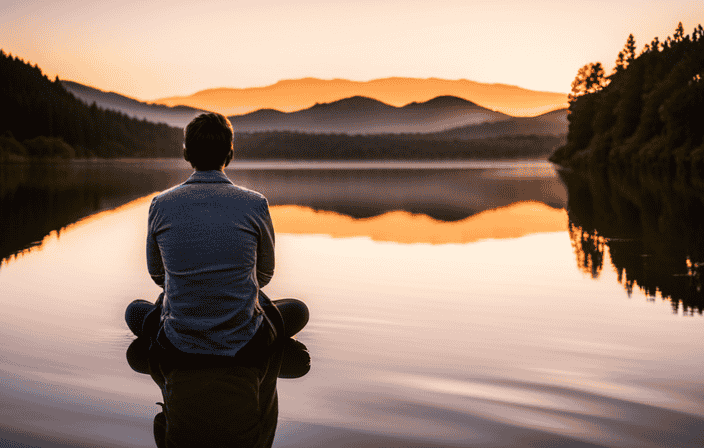
 Spirituality2 months ago
Spirituality2 months agoStarting Your Spiritual Journey: Self-Reflection, Growth, And Connection
-
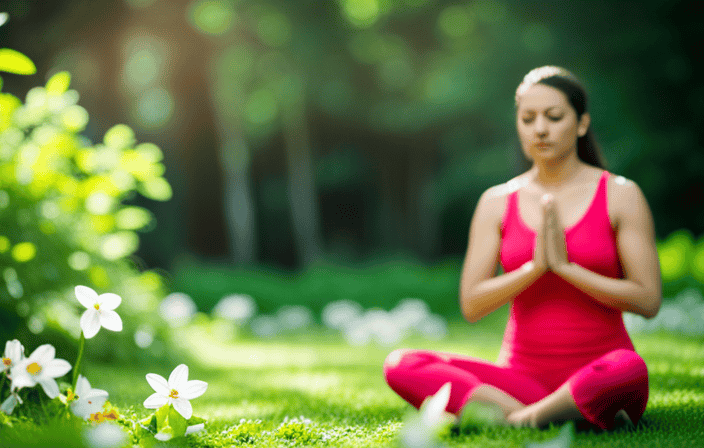
 Spirituality3 months ago
Spirituality3 months agoConnecting Spirituality And Daily Life: Embracing Universal Values
-

 Spirituality3 months ago
Spirituality3 months agoThe Mystical Realms: Exploring Spiritual Dimensions
-

 Meditation3 weeks ago
Meditation3 weeks agoThe Symbolic Significance Of Sand Dollar: Spiritual Meanings And Cultural Connections
